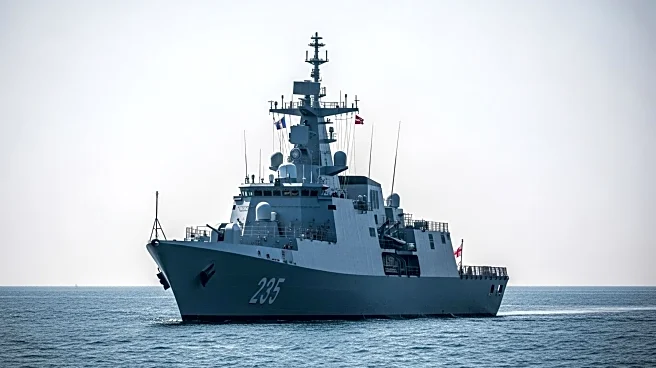What's Happening?
Israeli Defense Forces (IDF) intercepted a flotilla carrying humanitarian aid to Gaza, detaining 150 activists from eight vessels. The flotilla, known as the Freedom Flotilla, included participants from 130 countries, such as doctors, nurses, journalists, and elected officials. The vessels were carrying over $110,000 worth of aid, including medicines and nutritional supplies intended for Gaza hospitals. The activists were transferred to an Israeli port for deportation. The interception follows a previous incident where Israeli forces detained 479 activists aboard another flotilla, including climate campaigner Greta Thunberg. Activists have reported harsh conditions during detention, including restricted access to legal counsel and physical intimidation.
Why It's Important?
The interception of the flotilla highlights ongoing tensions surrounding humanitarian access to Gaza. The IDF's actions have sparked international criticism, with flotilla organizers citing violations of international law. The situation underscores the complex geopolitical dynamics in the region, affecting diplomatic relations and humanitarian efforts. The blockade of Gaza has significant implications for the local population, exacerbating the humanitarian crisis. The incident may influence international perceptions of Israel's policies and could lead to increased diplomatic pressure for changes in the blockade strategy.
What's Next?
International reactions to the flotilla interception are still emerging, with potential diplomatic consequences for Israel. Flotilla organizers and international legal bodies may pursue further actions to challenge the legality of the blockade. The situation could lead to increased advocacy for humanitarian access to Gaza, potentially influencing future policy decisions. The Israeli government may face pressure to address the humanitarian needs in Gaza while balancing security concerns.
Beyond the Headlines
The interception raises ethical questions about the balance between national security and humanitarian obligations. The treatment of activists during detention may prompt discussions on human rights and international law compliance. The incident could contribute to long-term shifts in international policy regarding humanitarian access and conflict resolution in the region.










